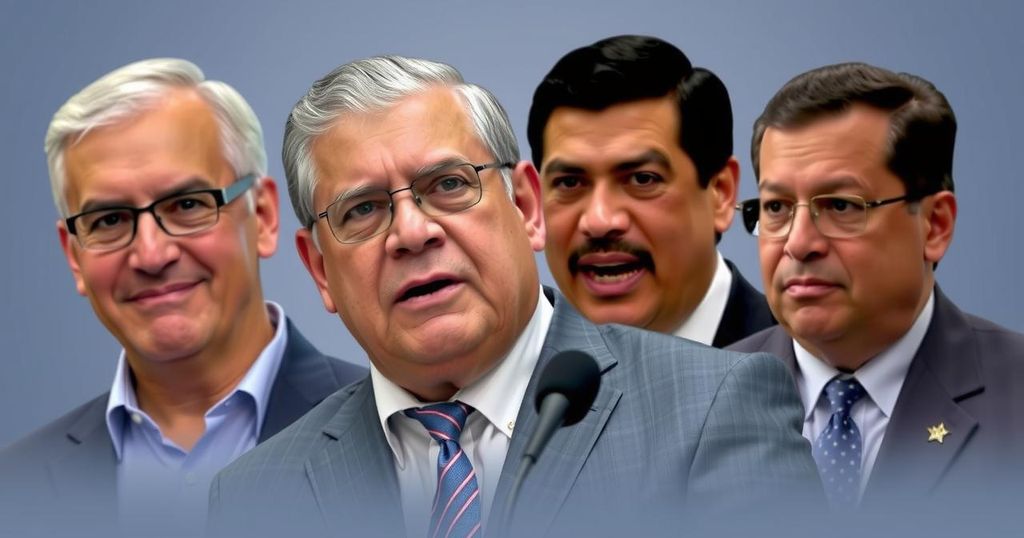Latin American Nations Reject Maduro’s Third Inauguration Amid Electoral Fraud Claims

Costa Rica, Ecuador, Panama, and the Dominican Republic condemned Nicolás Maduro’s inauguration for a third term, labeling it illegitimate due to alleged electoral fraud. Opposition leader Edmundo González Urrutia claimed victory in the July 28 elections, while Maduro’s administration faces scrutiny from various international entities. Human rights organizations report politically motivated arrests amidst ongoing calls for democratic reforms in Venezuela.
Costa Rica, Ecuador, Panama, and the Dominican Republic have collectively disavowed the inauguration of President Nicolás Maduro for a third term in Venezuela, which they label as a consequence of fraudulent elections. The countries, forming the Alliance for Development in Democracy (ADD), condemned the inauguration ceremony held on January 10, characterizing it as “illegitimate” and a result of “electoral fraud imposed through state terror against the Venezuelan people.” The ADD emphasizes the necessity for a democratic transition in Venezuela to end the ongoing oppression and human rights violations.
Since assuming the presidency in 2013, Maduro’s leadership has been scrutinized by international entities including the United States and the European Union. Opposition candidate Edmundo González Urrutia asserts that he emerged victorious in the July 28 elections, denouncing Maduro’s ceremony as a “coup d’état.” In a social media address, he accused Maduro of engendering a dictatorial regime after the electoral authority purportedly announced him as the winner with 52% of the votes, while the opposition claims González received as much as 70%. The purported lack of transparency surrounding the vote counts has intensified these allegations, prompting calls from political activists and organizations for accountability.
Alfredo Romero, president of the NGO Foro Penal, detailed that there have been “49 politically motivated arrests in Venezuela” since the start of the year. United Nations Secretary-General Antonio Guterres has expressed alarm over the situation and has urged the release of all “arbitrarily detained” individuals. The ADD pledges to collaborate with the international community to foster a legitimate democracy in Venezuela, underscoring the dire need to address the systematic violations of human rights facing the Venezuelan populace.
The political climate in Venezuela remains tumultuous, particularly with the ongoing controversies surrounding electoral integrity and human rights abuses. Nicolás Maduro has been critiqued both domestically and internationally for maintaining power through alleged coercion and fraudulent practices during elections. The ADD, comprising Costa Rica, Ecuador, Panama, and the Dominican Republic, has taken a strong stance against these methods, aligning against what they perceive as dictatorial governance. Opposition movements have called for democratic reform and the resolution of politically motivated detentions, while international figures emphasize the need for humanitarian considerations concerning the Venezuelan crisis.
In summary, the rejection of Nicolás Maduro’s inauguration by Costa Rica, Ecuador, Panama, and the Dominican Republic marks a significant stance against what they describe as an illegitimate and fraudulent electoral process. The assertion of electoral victory by the opposition further complicates the political landscape, indicating a deep-rooted crisis in governance and human rights. As international skepticism surrounding Venezuelan elections persists, the need for a democratic transition remains paramount, with increasing calls for the release of detained activists and political figures.
Original Source: ticotimes.net







